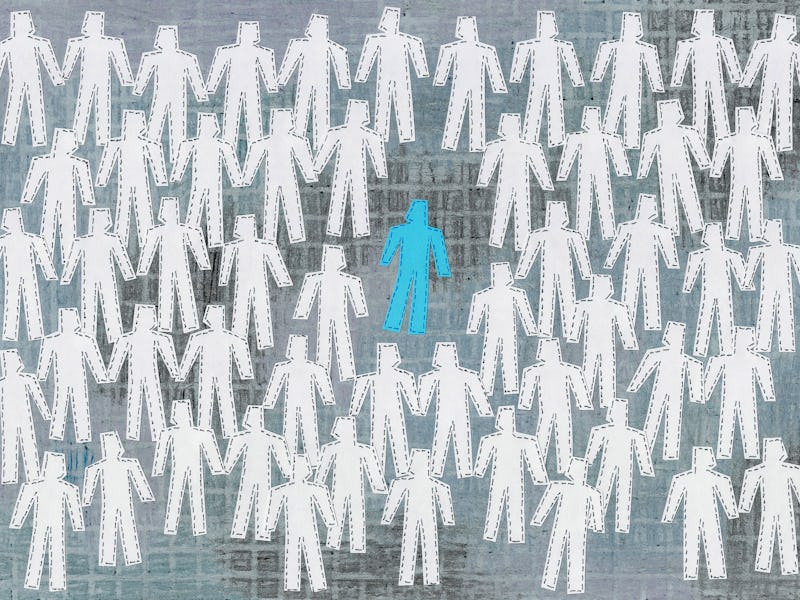As people socially distance, an emotional support app sees a boost in listeners
Meet HearMe.

Adam Lippin is the founder of a peer emotional support app called HearMe. (He’s also the founder of Atomic Wings, a very tasty chicken wing chain.)
Lippin was inspired to create this app because of his own experience dealing with addiction and loneliness. He remembers growing up in New York as a gay man during the AIDS crisis and watching his peers “become so lonely.” Reflecting now, he realizes that he’s wanted to find a way to help people connect since that experience -- his ultimate goal being that he wants everyone to have a person in the world that they can talk to when they need or want to.
HearMe, Lippin believes, is the technological answer to that. People are responding, in kind. The app launched about six months ago but has seen an upwelling in downloads since people across the country began to socially distance in response to COVID-19.
This interview has been edited and condensed for clarity.
Who are the HearMe “listeners”?
I have a company called Cuddlist, a professional cuddling site, and we have a training program run by co-founder Madelon Guinazzo. Her background is in critical communication for doctors, medical students, and hospital staff -- so how to deliver really bad news and still be radically present for someone, and yet able to go home at the end of the day.
Our original pocket of listeners came from that community, and most had their own sort of wellness practice. But now we have people from different countries, and listeners ranging from a college student to a grandmother. These are people who just feel deeply that they want to give people their presence.
When one person is present for another, and is trained to establish strong boundaries, they can benefit others immensely. I’ve been in recovery for about 23 years, and there’s the whole concept of a sponsor-sponsee relationship. One person who has been through something similar can be really impactful for someone who is going through the same. I believe that we all have shared lived experiences, and we can all be available for someone if we have the desire to. Our lived experience is valuable.
[All listeners are also required to go through a training course that covers establishing boundaries before they can begin listening.]
As people decided to socially distance themselves in response to coronavirus, have you seen an increase in downloads?
It has been insane how many more downloads we’ve seen. People are coming to us not because they are looking for medical advice, but because they just need a place where they can talk about their problems. Maybe they had to leave college and now they’re stuck at home, or maybe they’re worried about an elderly relative. Younger people, digital natives, seem to feel comfortable with this medium.
There have been about 15,000 downloads just in the past month. In this past week, we’ve had about 181 new listeners sign up, and 540 new people sign up looking for a listener. The cool thing is this ratio has existed since the very beginning.
Do you have a sense of the demographics of who is downloading the app to talk?
It is about 75 percent women and the ages tend to be between 19 and 35.
When it comes to the relationship between the listener and the person using the app, is it random who you are paired with or are you paired with the same listener if you go back to use it?
As of now, you choose a listener based on a category. Those are various subjects to talk about -- subjects like “relationships” or “LGBT” identity. So people who feel skilled, or feel like they have more lived experiences, in one of those particular categories can sign up to specifically participate in relation to those subjects.
Where does HearMe fit into the options for social support, ranging from recovery programs to loneliness hotlines to therapy?
It’s important to establish that we’re subclinical, meaning that we’re not looking for clinical outcomes. We are looking for someone to be seen, heard, validated, and have an experience with another real person. When you talk to someone, you get a photo and bio of who you are talking with. We’re not looking to solve a problem, like a therapist might do. We’re looking to simply be with you.
It can be a really helpful thing, especially right now. There are people all over the world who are quote, unquote *highly functioning* people who are very anxious about the state of the world, and they want to get their thoughts off their chest.